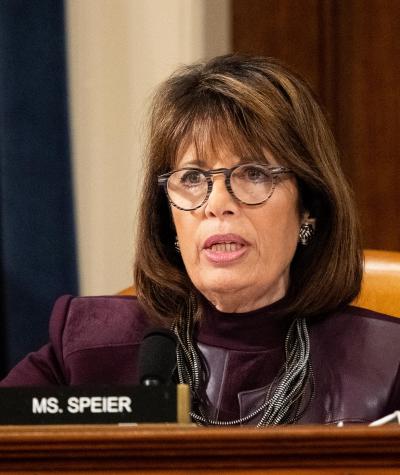H.R. 8718, a bill to extend the statute of limitations for those who violate campaign finance laws and ensure that they are held accountable, has been introduced by Rep. Jackie Speier to the U.S. House of Representatives. Campaign Legal Center (CLC) endorsed the legislation.
Currently, there is a five-year statute of limitations for both criminal and civil violations of federal campaign finance law. As a result, a wrongdoer can escape consequences if their campaign finance violations are only uncovered years later.
For example, The Washington Post reported earlier this year that now-U.S. Postmaster General Louis DeJoy may have violated the law by reimbursing employees’ political contributions in the 2014 election cycle and before.
However, because the alleged violations were over five years old, DeJoy might be able to avoid accountability, and voters will lack key information about how DeJoy may have secretly spent money to try to influence their vote and our government.
CLC separately filed a complaint against DeJoy regarding violations that occurred within the previous five years.
Even when campaign finance violations are timely discovered, commissioners on the Federal Election Commission (FEC) who oppose the agency's core mission have used the short statute of limitations as an excuse to avoid enforcing the law.
In multiple instances, the FEC has delayed taking action on complaints for years on end. Then, as the five-year statute of limitations approached, those commissioners have cited the expiring statute of limitations as a reason to dismiss the complaint or avoid fully investigating it.
Additionally, the statute of limitations continues to run even when the FEC lacks the quorum necessary to enforce the law.
At the moment, the FEC has been without a quorum for most of the past 14 months, and has therefore been unable to open investigations or issue penalties, including for those violations that occurred nearly five years ago.
As a result, under current law, political actors who violated campaign finance law in the early part of the 2016 election cycle might be able to run out the clock and avoid accountability.
The newly introduced bill would extend the statute of limitations for civil violations to 15 years, and for criminal violations, to 10 years.
Ultimately, to reduce political corruption, we need a stronger FEC to enforce campaign finance laws and hold political candidates and their donors accountable. Extending the statute of limitations for campaign finance violations is an important component of broader reform and would help create the conditions for a more accountable political system.
Learn more about the role the FEC plays in our democracy.
